Kaeli Swift knows crows. Between her undergradaute work and current doctoral work, she’s studied them for nearly seven years. While these exploits have given her a holistic education on all things crow, her current interest is in understanding their “funeral” behaviors.
Crows, in the family Corvidae, are known for their intelligence and adaptability. Everyone has a story, good or bad, which demonstrates the inquisitive, sometimes mischievous nature of these corvids.
To gain expertise as an ethologist and evolutionary biologist, Kaeli earned a Master’s degree and is currently pursuing her PhD at the School of Environmental and Forest Sciences at the University of Washington.
I met Kaeli at a dinner function in Seattle. Woman Scientist had just started hosting “Dinners with Field Scientists” — a night of informal connection between women pursuing careers in the sciences that get them out in the field. A mutual Field Scientist friend, Carolyn Rachel, brought her along. As we went around the table sharing our work, she spoke to us about studying funerals. The crow stories flew across the room.
Knowing her subject matter was such good conversation topic, I invited her to give a talk at the Institute for Systems Biology, where I worked at the time, for our informal luncheon discussion groups. She came straight from the field to share with us everything we needed to know about crows and it was the most well attended luncheon I’ve seen. The entire room was captivated by her research material and engaging presentation style.
Kaeli received her undergrad degree in Biology from Willamette University and knew that she wanted to go into wildlife biology. As a junior in undergrad, she started working with crows (and talking to John Marzluff), and crow work became the goal. Through her education she realized she wanted to have more power designing her own experiments. To figure out how to gain that independence, she made many calls to individuals who held job titles she saw herself having and asked what degrees they had. Most earned degrees in higher education which inspired her to pursue a PhD.
Let’s hear more from Kaeli:
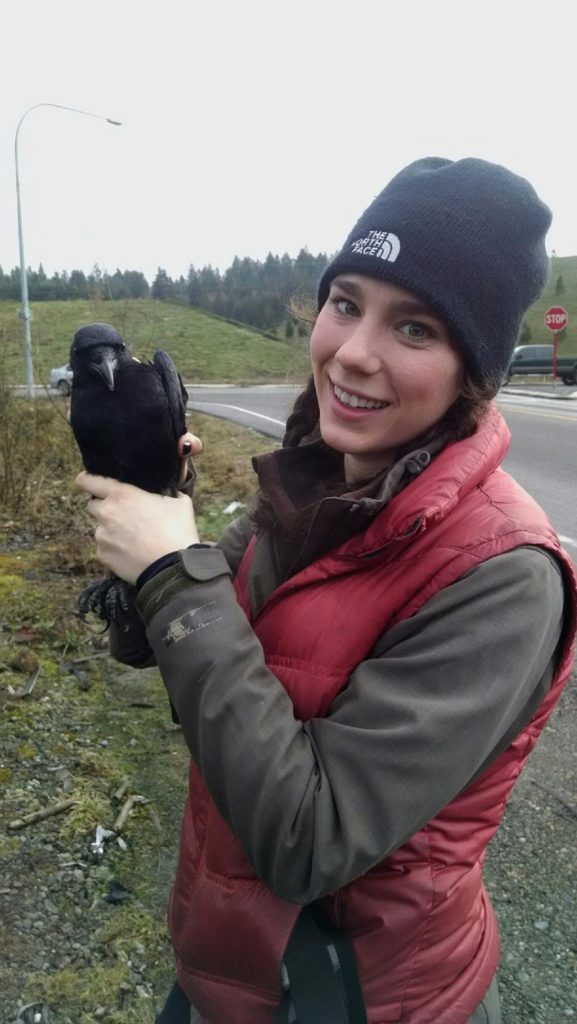
What was your first science-related job?
The summer of my Sophomore year I participated in The Student Collaborative Research Program which was basically a paid science internship (supported by the Murdock Charitable Trust). I looked at using the photo sharing network Flickr to track banded bird sightings.
Did you have any preconceived notions about science, or scientists, and did that change once you explored your career in science?
I thought it was cleaner. You learn about these famous experiments, even animal behavior experiments, and you have no idea how much mess and disaster goes into actually producing the data. It’s much less precise than I pictured when I was a young student doing mostly very simple lab experiments.
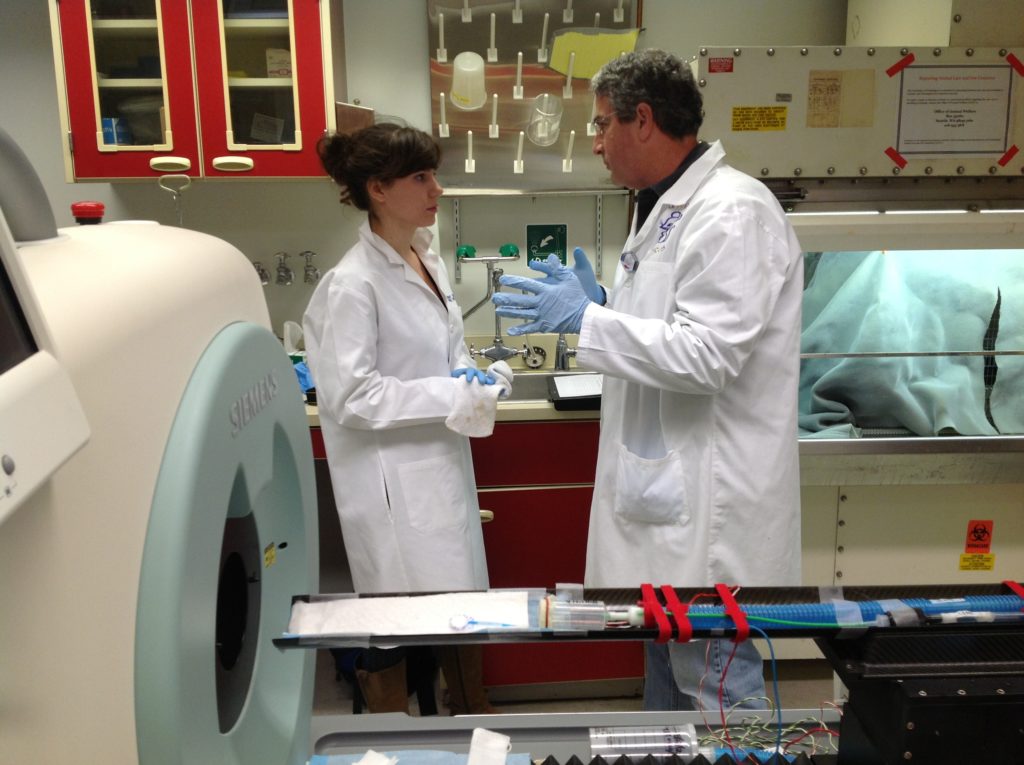
Kaeli and John Marzluff look at the brain activity of crows.
What is your earliest memory of being hooked by science?
When I was in 3rd grade I designed an experiment to test if goldfish had memory.
Was there any one person that inspired you?
Jane Goodall
What do you want to achieve in your career? What is your big dream?
When we think of the most famous contemporary faces of science, the people who have made careers out of translating science for the public, the reality is that they are still (mostly) white men. Women, people of color, members of the LGBTQ community, are all an increasing (albeit still minority) presence in the highest levels of academia and I want to be part of the force normalizing their faces as the faces of science. I love talking about my research, and science more broadly, with the public and I’d love to turn that passion into a career. To do so at the level of someone like Neil Degrasse Tyson or Bill Nye would be the ultimate goal.
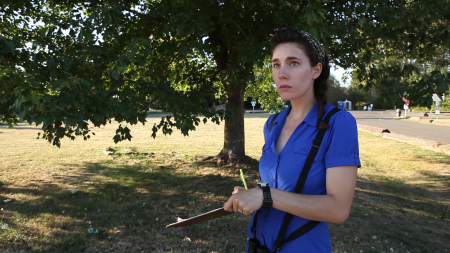
Photo credit: Michael Werner.
Has your work allowed you to travel? If so, where have you gone and what were you doing there?
I’ve been to Australia to do a 3 month tech job looking at sexual selection in Satin bowerbirds. It was the hardest physical job I’ve ever had, but it was by far the most beautiful and exciting. Then I went to IN for the private sector job. It was the exact opposite of the Aussie job in every way.
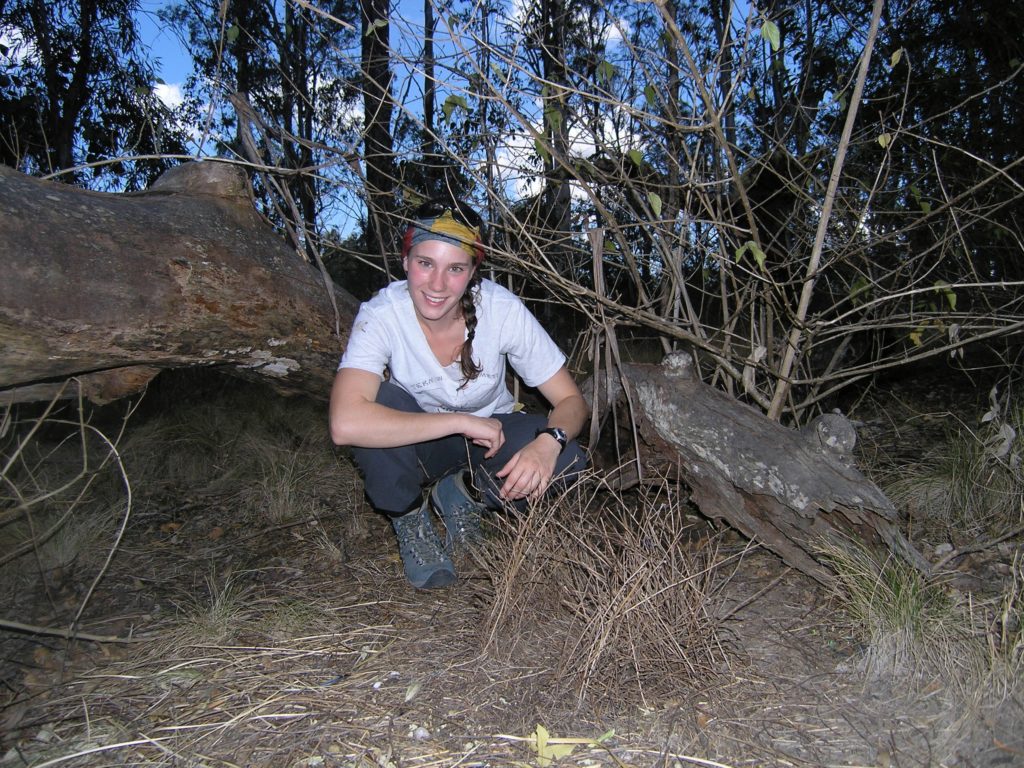
Tell about your experiences working in different sectors?
I’ve worked in academia and the private sector (I worked for 2 seasons with biological consulting firm). The private sector stuff paid BANK but there was also a nagging discomfort in knowing my bosses were paid by people who had very vested interests in the outcomes of our research. That being said I never witnessed anything that looked suspicious or like bad science. They treated us well, safety was taken seriously, and there were serious financial perks. Academia on the other hand is a bit more wild west. The pay is often meager, people hardly ever talk seriously about safety in the field, but there’s so much more freedom to ask crazy interesting questions.
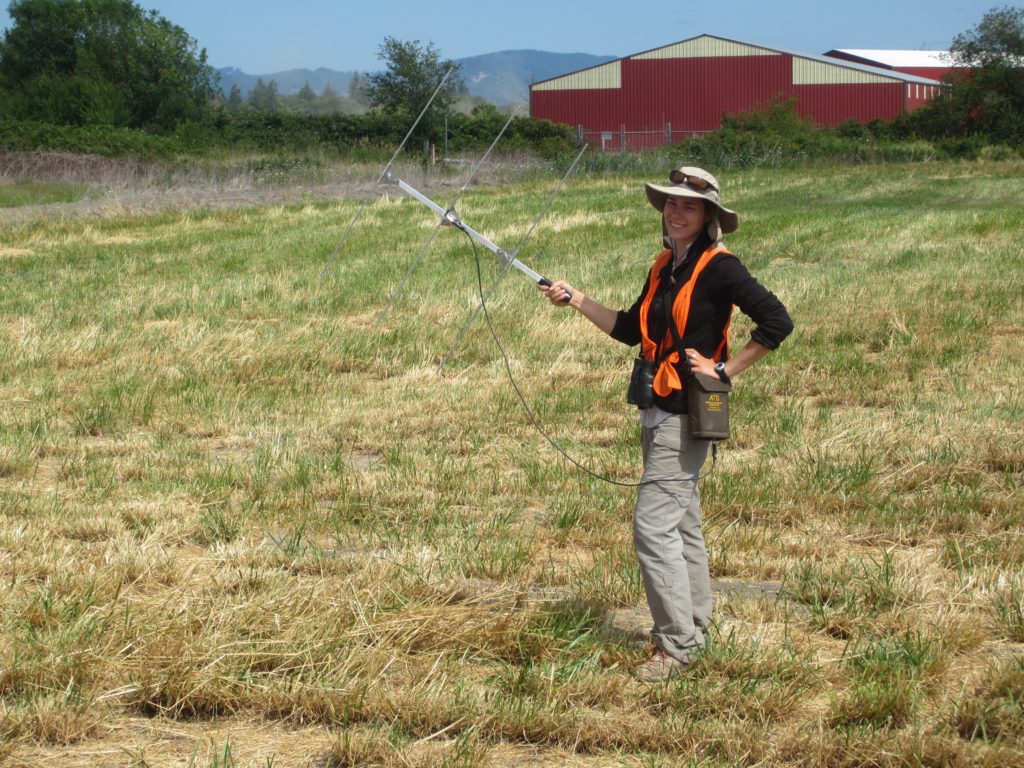
What were or currently are some big compromises or struggles you’ve experienced making a career for yourself in the science world?
Temporary field work was always tough before grad school because I was in a relationship. My husband and I have spent most every year apart, at first because of my job and more recently because of his. That was hard. Now, being a grad student, it feels like all our friends are growing up and moving on with their lives (buying homes, earning a decent wage, starting families) and we’re living the same life we did 10 years ago in college.
What keeps you motivated when you’re feeling the drudgery?
Sharing stories with my colleagues or engaging with my study animal in a non scientific way. Oh, and of course doing public talks. They’re maybe the biggest pick me up. They’re a great opportunity to recognize how much stuff you do actually know (grad school has a way of becoming Ygritte –Game of Thrones reference), be supported by kind strangers, and take your academia hat off and just tell people about all the best/most interesting aspects of your field.
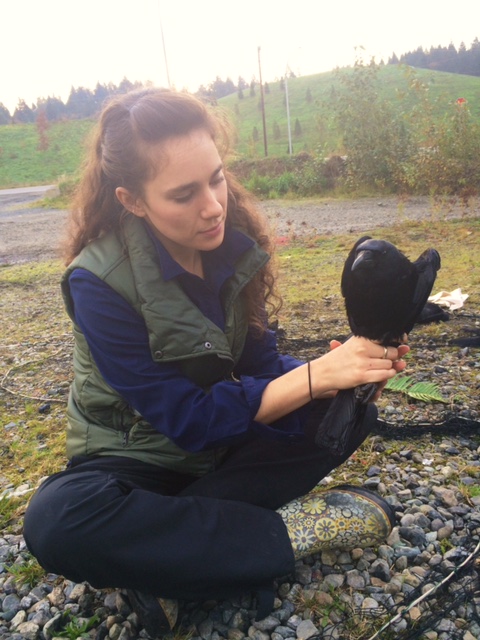
What are some key points you remind yourself of during your science career journey?
That other people have the same doubts that I do. Doubts about their path, their qualifications, and their achievements.
What are some inspirational materials you’ve used along the way?
TED talks are great! Also, Dogs Days Raven Nights by John and Colleen Marzluff is a great look at the post-doc experience.
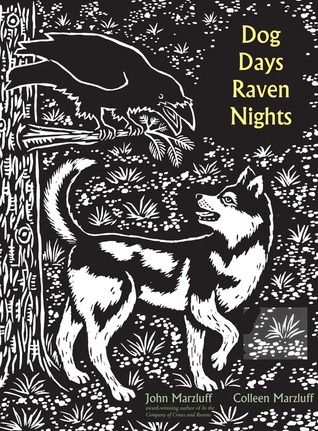
Thank you for the doing this interview Kaeli!
I know Kaeli’s story ended too soon and you’re probably hooked on wanting to hear more about her research with crows. Well, you can!
Be sure to follow Kaeli on Instagram, Twitter, and via her engaging blog posts!
If you liked this interview, please share it! And if you’re a Woman Scientist doing work out in the field, or know someone who is, we’d love to hear your career journey. Please fill out the interview by clicking here.
Share this:
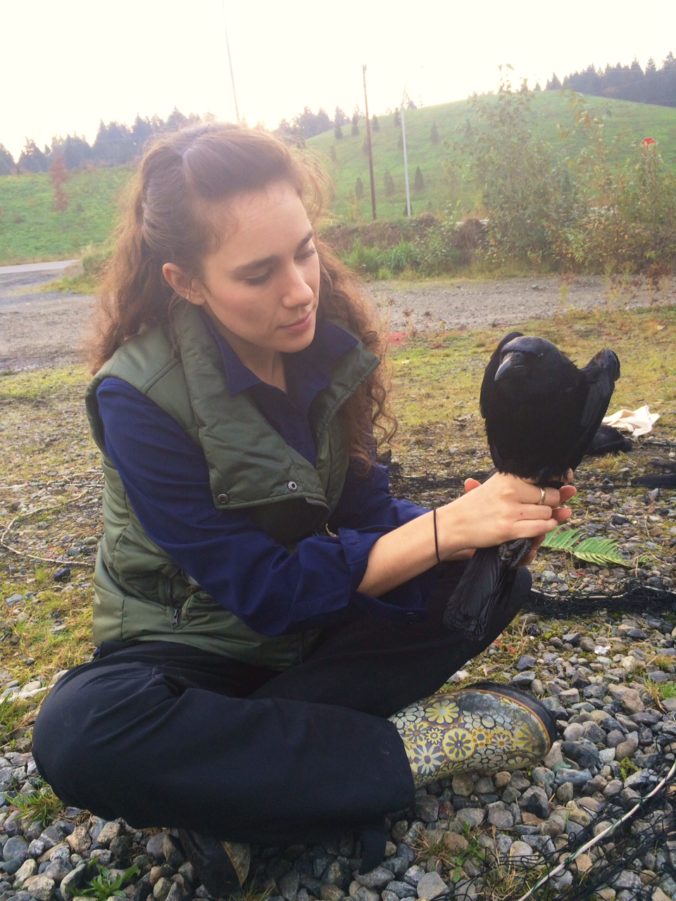

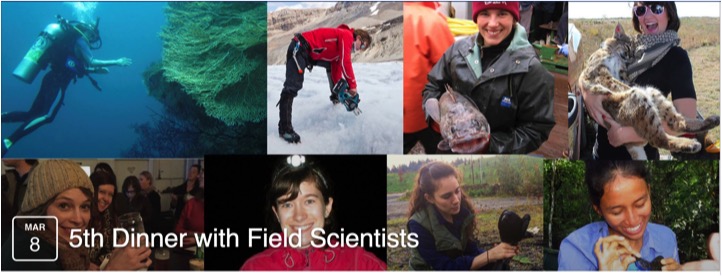
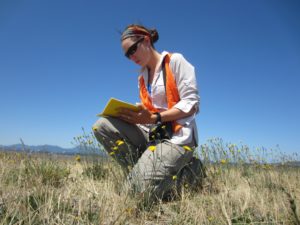
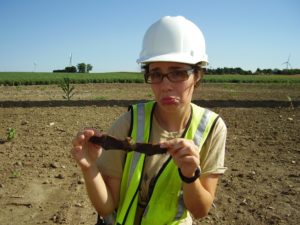
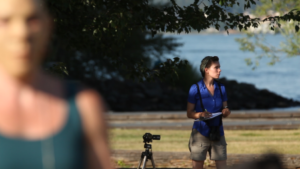
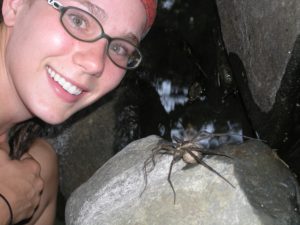
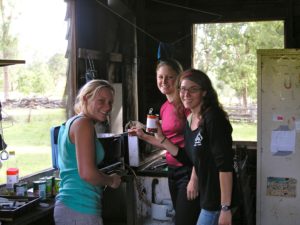
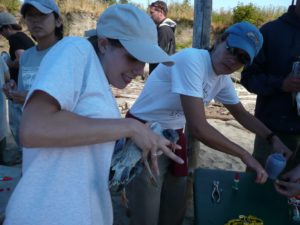
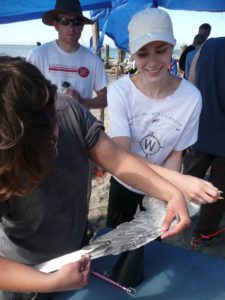
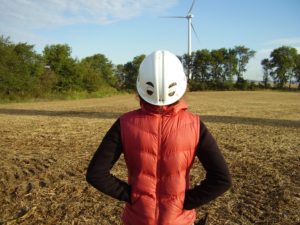
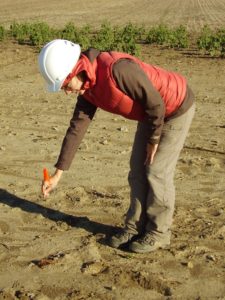
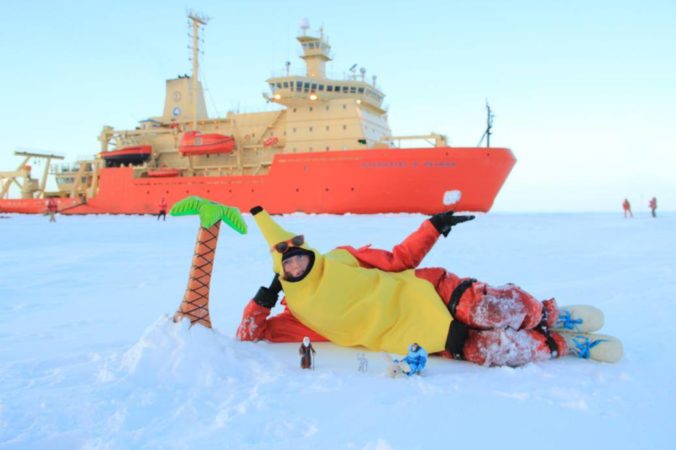
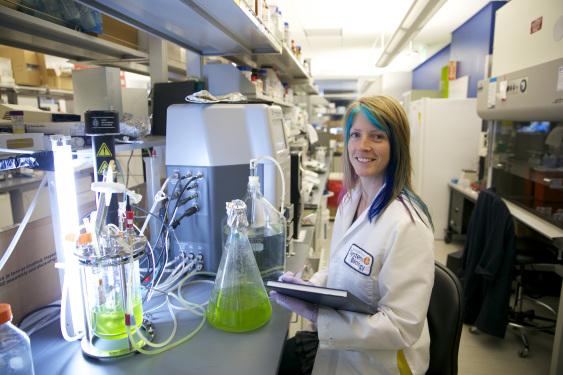
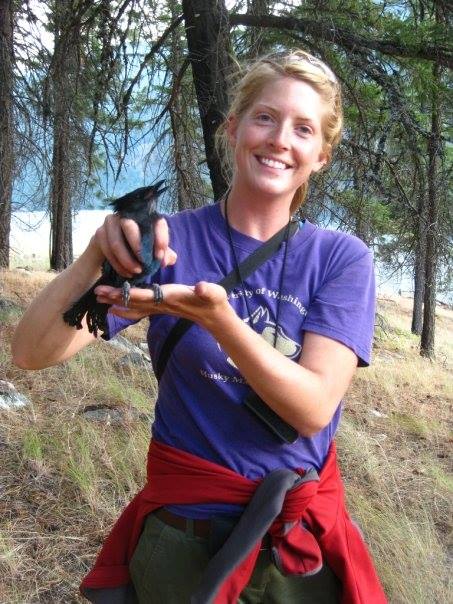


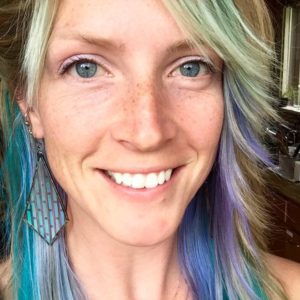






































Recent Comments